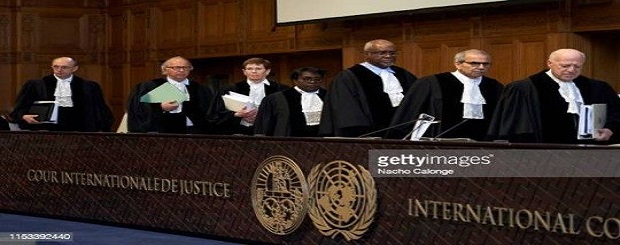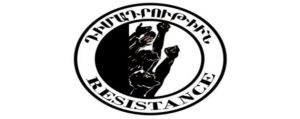
Հաագայի Դատարանը Մերժած է Ազրպէյճանի Պահանջած Միջոցներուն Մեծ Մասը
07 ԴԵԿՏԵՄԲԵՐ 2021 – ՀԱՅԱՍՏԱՆ – ԱՇԽԱՐՀ – ՄԻՋԱԶԳԱՅԻՆ ՔԱՂԱՔԱԿԱՆՈՒԹԻՒՆ:
ՄԻԵԴ-ի մէջ ՀՀ ներկայացուցիչ Եղիշէ Կիրակոսեան Twitter-ի վրայ գրած է Հաագայի դատարանի այսօրուան որոշման մասին:
«Դատարանը բաւարարած է Ազրպէյճանի դէմ Հայաստանի ներկայացուցած գրեթէ բոլոր միջանկեալ միջոցները եւ մերժած է Ազրպէյճանի պահանջած միջոցներուն մեծ մասը։ Հայաստանը կ՝ողջունէ դատարանի որոշումը եւ յոյսով է Ազրպէյճանի ու անոր բարձրաստիճան պաշտօնեաներու կողմէ այդ որոշման գործնական կիրարկումը ապահովելուն»,- գրած է ան:
Նշենք, որ ՄԱԿ-ի Արդարադատութեան միջազգային դատարանը «Հայաստանը Ազրպէյճանի դէմ» գործով միջանկեալ միջոցներ սահմանելու Հայաստանի դիմումին վերաբերեալ որոշումը ներկայացուցած էր Դեկտեմբեր 7-ին:
Հայաստանի Հանրապետութիւնը 2021թ. Սեպտեմբեր 21-ին, ՄԱԿ-ի գլխաւոր դատական մարմնին գործ յարուցած է Ռասսայական խտրականութեան բոլոր ձեւերու վերացման միջազգային պայմանագրի խախտման հիմքով Ազրպէյճանի դէմ Հայաստանի կողմէ ներկայացուած շարք մը հրատապ միջոցներու կիրառման առնչութեամբ։
Հայաստանը կը պնդէ, որ «Ազրպէյճանը տասնամեակներ շարունակ հայերը ենթարկած է ռասսայական խտրականութեան», եւ որ «պետութեան կողմէ հովանաւորուող հայատեացութեան քաղաքականութեան իբրեւ արդիւնք հայերը ենթարկուած են համակարգային խտրականութեան, զանգուածային սպանութիւններու, խոշտանգումներու եւ այլ չարաշահումներու»: Ըստ Հայաստանի՝ այս խախտումները ուղղուած են հայկական ցեղական կամ ազգային ծագում ունեցող անձերու՝ անկախ անոնց փաստացի ազգութենէն։
Հայաստանը կը պնդէ, որ «այդ գործելաոճը մէկ անգամ եւս դրսեւորուեցաւ 2020 թուականի Սեպտեմբերին՝ Արցախի Հանրապետութեան եւ Հայաստանի դէմ Ազրպէյճանի յարձակումէն ետք», եւ որ «այդ զինուած հակամարտութեան ընթացքին Ազրպէյճանը թոյլ տուած է միջազգային պայմանագրի կոպիտ խախտումներ»։ Դիմումատուն կը պնդէ, որ «ռազմական գործողութիւններու աւարտէն ետք», 2020 թուականի Նոյեմբեր 10-ին ուժի մէջ մտած հրադադարէն ետք, «Ազրպէյճանը շարունակած է իր յարձակումները՝ սպանութիւններու, խոշտանգումներու եւ հայ ռազմագերիներու, պատանդներու եւ այլ կալանաւորուած անձերու նկատմամբ բռնութիւն»:

La Cour internationale de Justice, ICJ), siégeant à La Haye (Pays-Bas) dans le palais de la Paix
La Cour internationale de Justice (CIJ ; en anglais : International Court of Justice, ICJ), siégeant à La Haye (Pays-Bas) dans le palais de la Paix, est établie par l’article 92 de la Charte des Nations unies : « La Cour internationale de Justice constitue l’organe judiciaire principal des Nations unies. Elle fonctionne conformément à un Statut établi sur la base du Statut de la Cour permanente de Justice internationale et annexé à la présente Charte dont il fait partie intégrante. » Elle a pour principales fonctions de régler des conflits juridiques soumis par les États et de donner un avis sur des questions juridiques présentées par des organes et agences internationaux agréés par l’Assemblée générale des Nations unies.
Elle a été créée en 1945, après la Seconde Guerre mondiale, pour remplacer la Cour permanente de justice internationale (CPJI), instaurée par la Société des Nations (SDN)2. Elle a comme langues officielles le français et l’anglais.
– – – – – – –
The International Court of Justice (ICJ; Seated in the Peace Palace in The Hague, Netherlands
The International Court of Justice (ICJ; French: Cour internationale de justice; CIJ), sometimes known as the World Court,[1] is one of the six principal organs of the United Nations (UN).[2] It settles disputes between states in accordance with international law and gives advisory opinions on international legal issues. The ICJ is the only international court that adjudicates general disputes between countries, with its rulings and opinions serving as primary sources of international law.
The ICJ is the successor of the Permanent Court of International Justice (PCIJ), which was established in 1920 by the League of Nations. After the Second World War, both the League and the PCIJ were replaced by the United Nations and ICJ, respectively. The Statute of the ICJ, which sets forth its purpose and structure, draws heavily from that of its predecessor, whose decisions remain valid. All member states of the UN are party to the ICJ Statute and may initiate contentious cases; however, advisory proceedings may only be submitted by certain UN organs and agencies.
The ICJ consists of a panel of 15 judges elected by the UN General Assembly and Security Council for nine-year terms. No more than one judge of each nationality may be represented on court at the same time, and judges collectively must reflect the principal civilizations and legal systems of the world. Seated in the Peace Palace in The Hague, Netherlands, the ICJ is the only principal UN organ not located in New York City.[3] Its official working languages are English and French.
Since the entry of its first case on 22 May 1947, the ICJ has entertained 179 cases through March 2021.[4]
en.wikipedia.org/wiki/International_Court_of_Justice
yerakouyn.com/2021/12/07/հաագայի-դատարանը-մերժած-է-ազրպէյճանի/
